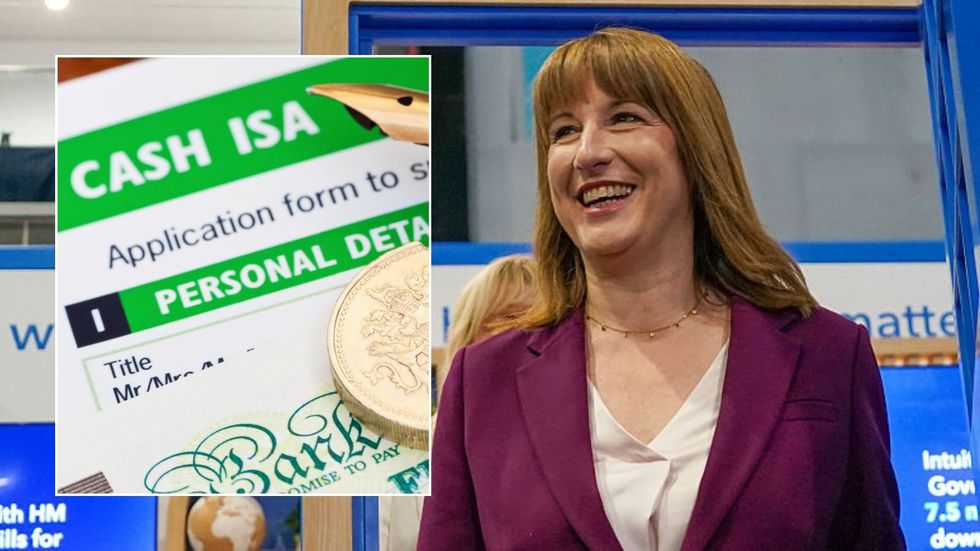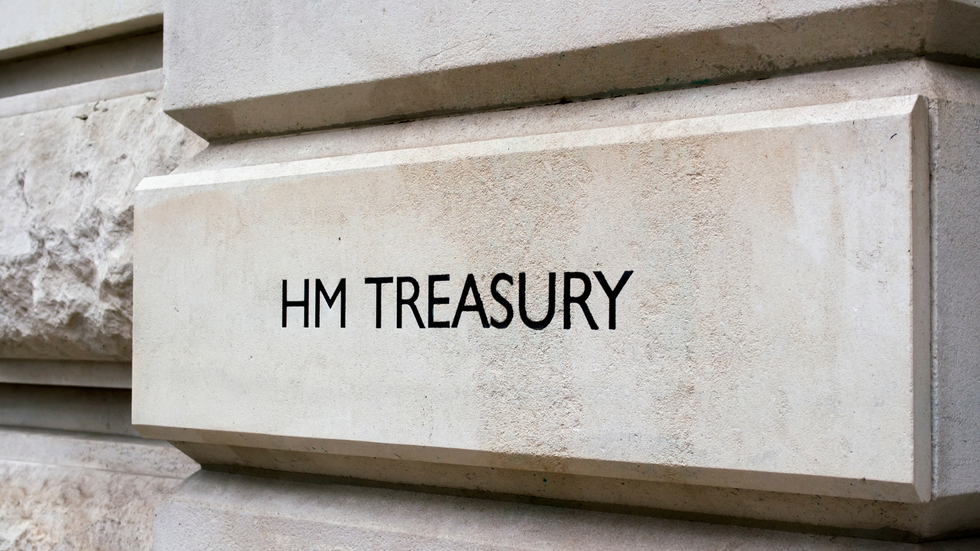Rachel Reeves plots tax raid on savers as ISA allowance could be HALVED in 'major shake-up'

Savers urged to be careful of tax on savings interest |
GB NEWS

As it stands, British savers can put up to £20,000 into cash ISAs without having to pay any tax
Don't Miss
Most Read
Latest
Chancellor Rachel Reeves is understood to be floating a "major shake-up" to the tax regime which could impact Britons' savings and generate further revenue for HM Revenue and Customs (HMRC).
Treasury officials are conducting discussions with financial institutions about reducing the annual cash ISA allowance from £20,000 to £10,000, as the Chancellor prepares to announce significant reforms in her Autumn Budget.
Under the rumoured changes, the Chancellor is aiming to redirect billions in savings towards domestic equities, with Ms Reeves seeking to establish an American-style investment culture in Britain.
Sources familiar with the discussions indicate the Treasury is examining a potential £10,000 yearly limit for cash ISAs, while maintaining the overall £20,000 ISA ceiling.

Rachel Reeves could be preparing a 'major shake-up' for ISA savers
|GETTY / PA
The Chancellor's team has confirmed that reducing the cash ISA allowance remains under active consideration, though they emphasise that multiple proposals are being evaluated and final decisions are pending.
These reform efforts encountered significant opposition during the summer when building societies cautioned that cash ISA deposits help finance mortgage lending, and any reduction could potentially increase borrowing costs for homeowners.
Despite this pushback, Treasury representatives have resumed engagement with financial services firms in recent weeks to explore limiting cash ISA contributions for savers.
Notably, these consultations follow the Chancellor's July Mansion House address, where she indicated plans to examine "further changes to ISAs" while "engaging widely in the coming months" to deliver improved results for British savers and the wider economy.
 The Treasury is looking for ways to improve its fiscal headroom | GETTY
The Treasury is looking for ways to improve its fiscal headroom | GETTYThe meetings signal renewed momentum behind the proposals after earlier resistance temporarily halted progress. City Minister Lucy Rigby highlighted the potential benefits at Tuesday's Investment Association dinner.
She explained: "Someone who put away £1,000 in a cash Isa every April since 1999 would now hold about £34,000. If they had instead invested in a stocks-and-shares Isa instead, they could now have around £83,000. We are committed to building a shareholding democracy."
An ally of the Chancellor told The Financial Times: "She wants to see people investing more in British stocks because it's good for growth and it generates better returns for savers."
The reforms aim to address London's equity market struggles, which have seen insufficient investment and limited company flotations in recent years. If implemented, the proposed changes would represent the most substantial restructuring of ISAs since Gordon Brown introduced them in 1999.
In a statement regarding the reforms, a spokesperson for the Treasury: "Cash savings are important for people looking to put cash away for a rainy day and we will protect that.
"But the Chancellor has been clear that she wants to get Britain investing again, so British companies can grow and British savers who choose to invest can get more in return."
Officials are also reportedly considering resurrecting the previous government's "Brit ISA" concept, which would have offered an extra £5,000 tax-free allowance specifically for UK equities, though Labour initially rejected this proposal as overly complicated.
Kevin Mountford, the co-founder of savings platform Raisin UK, described the prospect of halving the cash ISA allowance as being a "major shake-up for savers" in Britain.
LATEST DEVELOPMENTS:
 Stocks and Shares ISAs are the top pick for younger savers | GETTY
Stocks and Shares ISAs are the top pick for younger savers | GETTYHe shared: "ISAs have been one of the few simple, trusted ways to protect savings from tax, and cutting the limit would undermine that confidence. At a time when more people than ever are paying tax on their savings interest, restricting access to tax-free cash savings could feel like a step backwards for ordinary households. There is no denying that while ISAs have been a great success, they have become somewhat confusing and changes are needed.
"However, the proposed cap on the cash element may well backfire. While data shows that returns from stocks and shares are greater than money invested in cash, the former generally needs to form part of a longer-term plan. Rightly or wrongly, UK consumers tend to be more risk averse, and any attempts to push them down this route could dissuade people from using ISAs altogether, leading to more money being held in standard savings accounts and therefore incurring tax.
"It has taken considerable effort to build a stronger savings culture in the UK, and it feels as though the Government now sees savers and pensioners as easy pickings. The Government’s ambition to get Britain investing is understandable, but it is important not to punish those who value the certainty and security of cash. For many, particularly older savers or those building an emergency fund, a cash ISA is not about chasing returns but about peace of mind.
"Any reform needs to balance the push for growth with the need for financial inclusion. Savers should take stock of their options now, review existing ISA balances, consider using this year’s full £20,000 allowance while it is available, and make sure their money is spread across the best-paying accounts. For those thinking longer term, exploring a mix of cash and investment ISAs may offer the best of both worlds."
More From GB News










